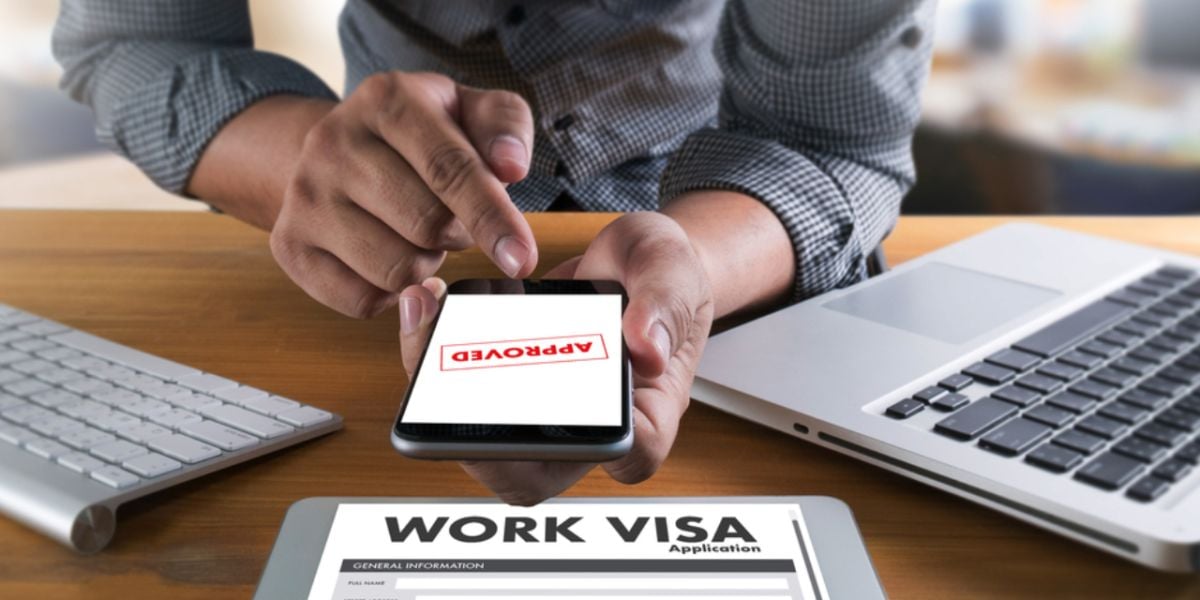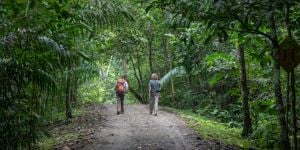
To work in Panama, foreigners must obtain an appropriate visa and a work permit. The country offers various types of work authorizations; some can lead to permanent residency, while others do not. Thorough research and legal guidance are essential to selecting the most suitable visa category.

Navigating the work visa process in Panama
Panama promotes global trade, foreign investment, humanitarian aid and bilateral treaties with other countries. As a result, various work visa types are available here, each with different requisites and benefits.
The country has a list of protected professions reserved exclusively for Panamanians. Examples include medicine, psychology, law, dentistry, sociology, agronomy, accounting, architecture and engineering. Foreign nationals are not allowed to apply for work-related immigration status or practice in these fields. Some foreigners bypass this regulation by working under the license of a Panamanian company. However, they cannot obtain their certification to offer independent services.
Depending on the visa type, either the employer or the foreigner will handle the legal procedures. Obtaining a work authorization may be complex and time-consuming. Preliminary research is necessary to define your options. Also, collaboration with immigration lawyers is vital for a successful transition into the country's labor force.
Employers are responsible for handling some types of work authorizations. Such visas include the Marrakech agreement, as well as 10% workforce and technical visas. Businesses tend to have legal advisors to assist with these matters. In such cases, the validity of the permit is tied to the employment contract term.
Some permits, such as the Friendly Nations visa and the Panama-Italy Treaty, allow foreigners to apply independently. Hiring an immigration lawyer is essential. Although it implies extra costs, the assistance is valuable. Local attorneys are familiar with the requirements and processes within governmental institutions. They may also have personal connections with officials, which can help ensure a smooth progression of your case. At times, the correct completion of immigration forms can make a significant difference. Navigating these matters alone can be challenging.
Types of work visas in Panama
Visas for workers of regular private companies
Visa for foreign employees within 10% of regular staff in Panama
This residence permit allows private companies to hire foreign staff for trusted roles within 10% of their regular workforce. This provisional authorization is valid for two years. After this period, an application for permanent residency is allowed.
Expert or technician visa within 15% of a company's staff in Panama
This residency option is for technical specialists. It allows foreigners to assume key roles within a Panamanian company, such as overseeing operations or managing specific departments. This provisional permit is valid for two years. Afterward, individuals may request permanent residency in the country.
Friendly Nations visa
Nationals of 50 “friendly nations” can opt for this visa if they prove economic, professional or investment ties to the Republic of Panama. To qualify, applicants must secure a job offer or employment contract with a local company. Individuals can request permanent residency two years after the initial approval date.
Work visa under the Marrakech Agreement
This visa does not allow application for permanent residency. Applicants can receive a one-year authorization, renewable annually for up to six years, and a work permit. The organization must employ between three and ten Panamanian citizens. Also, the foreign employee's salary must exceed USD 1,000 a month.
Visa for employees of aviation companies based in Panama
Aviation workers can get renewable temporary residency for up to six years. The applicant must present the following documentation:
- A work contract confirming a salary of over USD 1,000 a month, approved by Mitradel (Ministry of Labor and Workforce Development);
- A certification from Panama's Civil Aviation Authority confirming the applicant's qualifications to work in the aviation sector;
- The airline certification confirming the foreign employee's specialized skills are unavailable locally.
Visas for workers of special-regime companies
Companies under the special regime receive benefits from the Panamanian government. Currently, the following special regimes exist in the country:
- SEM and EMMA regimes;
- the City of Knowledge (Ciudad del Saber);
- Panama Pacifico;
- Colón Free Zone;
- Barú Free Zone;
- other free trade zones.
Visa for workers of SEM companies
SEM (System of Multinational Corporation Headquarters) is a special fiscal regime created in 2007. It aims to position Panama as a regional business center through policies that promote international investments. Multinational corporations are large companies that operate in many jurisdictions and maintain centralized headquarters.
SEM corporations established in Panama have a simplified immigration process for foreign executives. The supportive legal framework ensures smooth procedures. These employees do not require a separate work permit from Mitradel. This renewable temporary resident status is granted for up to five years. Additionally, it offers the option to apply for permanent residency.
Visa for workers of EMMA companies
EMMA (Multinational Companies for the Provision of Manufacturing-related Services) is a special regime designed to establish light manufacturing and repackaging logistics centers in the country. Like SEM, this regime offers tax benefits and fosters international investment and job creation.
Foreign personnel of these companies can get temporary visas for up to five years. Afterward, they can request permanent residency. A separate work permit from Mitradel is not necessary for this work visa.
Visas for Panama Pacifico's workers
This zone in the former U.S. Air Force Howard Base offers tax incentives and import duty exemptions.
Panama Pacifico's temporary visa is for foreign personnel who comprise 10% of a company's workforce. Valid for 5 years, this provisional status provides a pathway to permanent residency.
Visa for Panama's free zones staff
Panama's free trade zones offer strategic locations, tax exemptions, simplified customs procedures and a favorable business environment.
The country has several free zones, including the Colón and Barú free zones. Foreign workers in these areas can apply for residency and work permits, valid for the duration of their employment contract.
The City of Knowledge visa
The Panama City of Knowledge (Ciudad del Saber), a former U.S. military base, is an innovation-driven hub located on the edge of the capital. It is home to research institutions, universities, technology firms and international organizations. The City of Knowledge enjoys tax benefits similar to those of the Colón Free Trade Zone, the second-largest distribution center in the world.
Investors leasing office space or a building within the City of Knowledge facilities can get work visas for their employees.
The City of Knowledge visas fall into the following categories:
- Researcher;
- Teacher;
- Business owner or executive;
- Technician.
This temporary residency must be renewed annually for up to six years.
Visa for call center employees
Call centers for commercial export purposes can hire foreign nationals for trusted roles, as well as expert executives and technician positions. This temporary residency is renewable for up to six years.
Other work visas
Cultural, sports or educational visa
Employers can hire foreign citizens for single-occasion projects in the following fields:
- Culture;
- Music;
- Arts;
- Education;
- Sports;
- Science;
- Technical and professional fields.
The applicant's stay in the country must be at least 15 calendar days. Proof of accommodation and a return ticket are required. Additionally, the employer must make a security deposit of USD 250 in favor of Panama's National Migration Service. If the request is for a group of more than 30 foreign nationals, the security deposit is USD 7,500.
This authorization is valid for up to three months and can be extended for three additional periods of the same duration. After these extensions, employees must change their visa category. They must apply for a specialized or technical staff visa, subject to the company's 15% workforce limit.
Domestic workers visa
Citizens and residents of Panama can hire foreign domestic workers, such as maids, cooks, drivers, gardeners and nannies. This visa is valid for one year and can be renewed up to four times as long as the applicant continues working with the same employer.
General requirements for work visas in Panama
Requisites for Panamanian work visas vary by the type of authorization. However, some documents are similar across all types:
- Power of attorney authorizing a local lawyer to handle the case;
- Application forms;
- Complete passport copy, authenticated by a Panamanian notary;
- Three passport-sized photos;
- Criminal record certificate, apostilled or legalized by the applicant's country of origin (or the country of the last five years of residency);
- Health certificate issued by a licensed Panamanian doctor;
- Payment of the National Treasury and National Migration Service fees;
- Sworn declaration of personal background;
- Work contract, registered with Mitradel;
- Responsibility letter from the company, certifying the applicant's position, services provided, salary and term of employment, signed by the company's legal representative.
This list is not exhaustive. The requisites may vary by work visa type. The employer may also need to provide documents, such as the company's operation notice and Public Registry certification. Extra fees and documentation may apply for dependents (spouses, children, parents).
The processing times for work visas in Panama range from two to six months. After receiving the approval resolutions, applicants get a temporary resident card. Permanent residency, available through some work visa categories, requires a separate application process at the end of the provisional period. Final approval may take an additional six months.
Obtaining a work permit in Panama
It's crucial to remember that most Panamanian work visas require an application for a work permit. Exceptions include SEM and EMMA visas, as well as those for government-hired artists. Once a foreigner's immigration status is approved, the lawyer handling the case must request a work permit from Mitradel.
Work permit requirements
Work permit requirements vary depending on the foreigner's residency program. General requisites include:
- Power of attorney authorizing a local lawyer to handle the case;
- Application form;
- A certificate issued by the National Migration Service stating the applicant's status;
- Passport copy;
- Panamanian residency card copy;
- Four passport-sized photos.
When Mitradel approves the application, the foreigner will receive a work permit ID valid for the term of the immigration status.
Risks of working in Panama illegally
Panamanian authorities are strict about employment laws. Compliance with the regulations is necessary for a peaceful existence in this country. Some individuals bypass immigration procedures because they cannot find a suitable visa type for their case. Some organizations also risk hiring workers without proper paperwork, as illegal labor tends to be cheaper. However, working in Panama without a valid work visa or permit can result in serious consequences, including:
- Deportation: If you work illegally and get discovered, you may face deportation and a ban from the country.
- Fines to the employer: If a company employs illegal workers, it may be subject to penalties.
- Lack of worker's compensation benefits: If you work illegally, you are not protected by Panamanian labor law or covered by the Social Security System. If you are injured or disabled while performing your work activities, you won't be able to receive support from the government.
Takeaway
Panama is a regional business hub that promotes growth through welcoming immigration policies. Investors, professionals, digital nomads and retirees from around the globe call this country home. Securing your legal work status is crucial if you plan to work here. Panama offers a variety of visa types for different scenarios. Immigration lawyers can help you choose the best option and transition into the local labor market. Both employers and employees should be aware of the necessary requisites and the risks of illegal labor.
Useful links:
Mitradel (Ministry of Labor and Workforce Development)
We do our best to provide accurate and up to date information. However, if you have noticed any inaccuracies in this article, please let us know in the comments section below.








